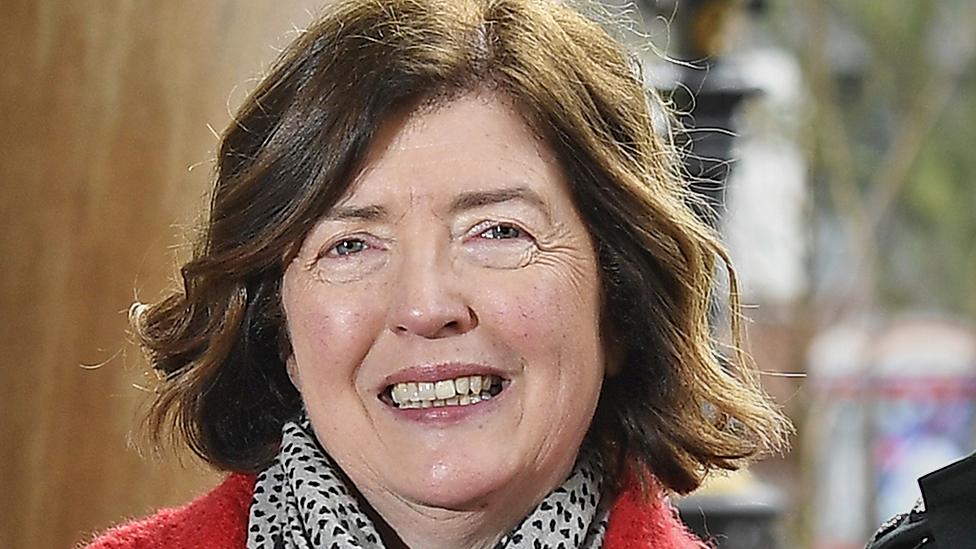Sue Gray cleared to work for Labour amid Conservative anger
- Published
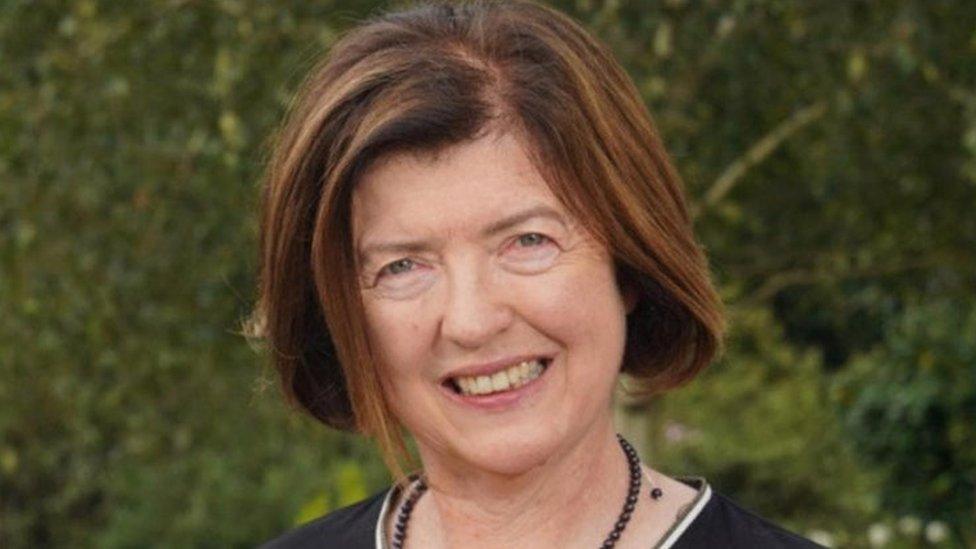
Former official Sue Gray has been cleared to work for Labour, but faces Tory claims she may have broken civil service rules.
Parliament's appointments advisory body said she could start in September, six months after quitting as a civil servant in March.
But ministers are set to claim she may have broken rules by failing to declare her contact with the party over a potential job.
Labour insisted no rules were broken.
Ms Gray, who led an inquiry into lockdown gatherings at No 10, is set to become chief of staff to Labour leader Sir Keir Starmer.
The party said Ms Gray only had one phone call with Sir Keir before she resigned in March, and the conversation did not relate to any government business.
However, the government is expected to declare her contact with the Labour leader while she was still an official a breach of the rules for civil servants.
Labour claims the government's intervention - set to take place on Monday - is politically motivated.
Some Tories had expressed anger that she was offered a job as the Labour leader's chief of staff, arguing it undermined the impartiality of her inquiry into lockdown-breaking parties.
Her report prompted numerous MPs to call for then-Prime Minister Boris Johnson's resignation and contributed to his downfall.
Recommendations from the Advisory Committee on Business Appointments (Acoba) are not binding, but both Labour and Ms Gray had said they would abide by them.
Sir Keir said he was "delighted" Ms Gray would be working for the party, adding she would "lead our work preparing for a mission-led Labour government".
"She brings unrivalled experience on how the machinery of government works and is a woman of great integrity," he added.
Starmer phone call
With a general election expected next year, Ms Gray will play a key role in helping Labour prepare for government, if it wins power.
Civil servants - who develop and implement government policies - are expected to be politically impartial.
Ms Gray told Acoba she received a call from Sir Keir in October last year, when he raised the idea of her working for Labour in a senior capacity.
The committee said it was "quite normal for individuals to discuss the possibility of new roles before leaving office" but "any potential conflict must be declared".
Cabinet Office Minister Jeremy Quin has tabled a written ministerial statement for Monday.
It is expected to say that Ms Gray broke the civil service code - which sets out the standards of behaviour civil servants are expected to follow - by failing to declare her conversation with Sir Keir to ministers.
However, the department will not be able to impose any retrospective punishments.
Cabinet Office sources said Sir Keir, as a former civil servant - he was director of public prosecutions from 2008-13 - should have been aware of the rules and they will accuse him of not ensuring that Ms Gray disclosed her contact with him.
Ms Gray resigned from the civil service on 2 March, following media speculation about a potential job offer from Labour, but she told the committee there was no formal offer of employment until that date.
She said that while she had brief personal conversations with Labour during her time in office, no government business was discussed.
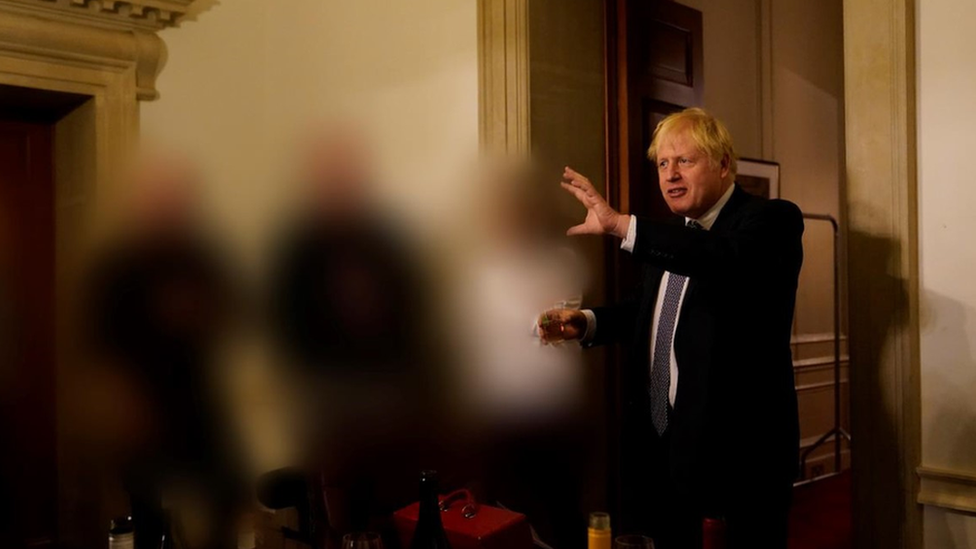
Sue Gray's Partygate report set out evidence of lockdown-breaking gatherings at Downing Street
The committee said there was no evidence her contact with Labour had impacted her actions in her civil service role or her ability to remain impartial.
It added that there was "limited scope for Ms Gray to offer unfair influence in securing access to government".
However, it said there remained "a potential risk to the perceived impartiality of the civil service that would be exacerbated" if she took up the job immediately on leaving office.
Under the civil service code, officials of Ms Gray's seniority must wait a minimum of three months before taking up outside employment.
As well as a six-month break, the committee also recommended Ms Gray should not be personally involved in lobbying the government on behalf of the opposition for two years from the date she left the civil service.
Government departments had called for a 12-month break, arguing there was a risk the appointment weakened public trust in the impartiality of the civil service.
Ms Gray, who joined the civil service in the 1970s, was asked in 2021 by Mr Johnson to investigate lockdown-breaking gatherings in government buildings.
Her final report, published in May 2022, concluded that several events breached Covid rules and that there were "failures of leadership" in No 10.
Mr Johnson has previously said the job offer from Labour raised questions over the conclusions of her inquiry.
Other responsibilities Ms Gray had as a civil servant included a programme to improve relations between the nations that make up the UK.
She was also in charge of introducing the controversial voter ID scheme, which Labour has spoken out against.
Related topics
- Published3 March 2023
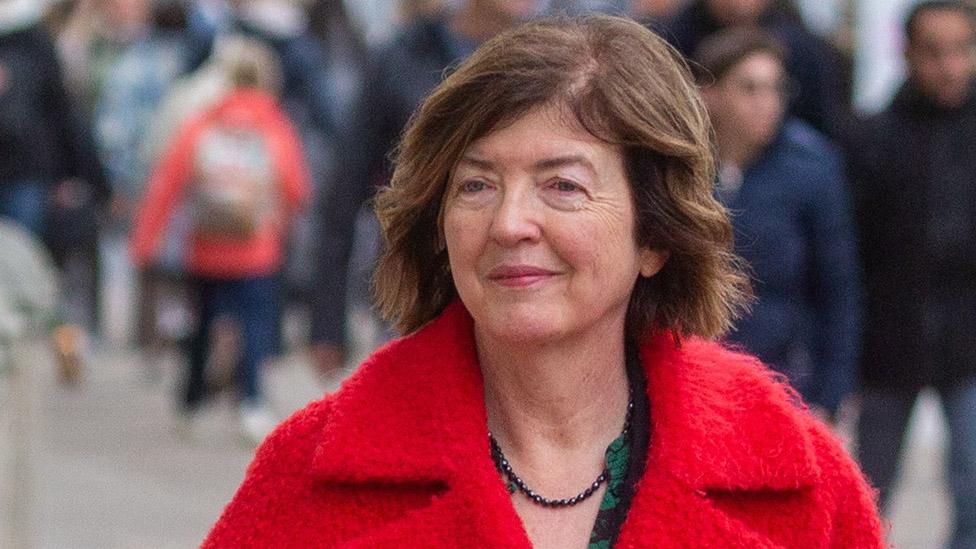
- Published30 June 2023
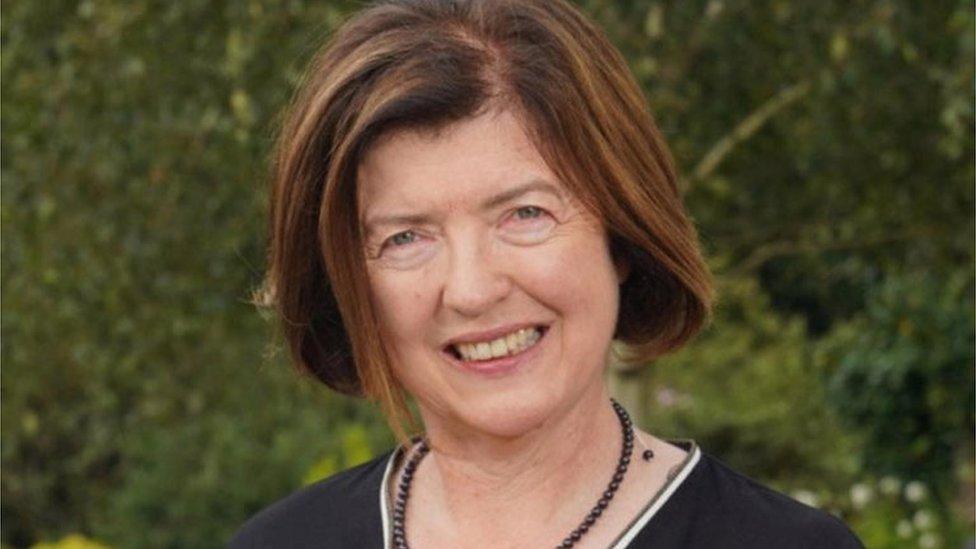
- Published3 May 2023
